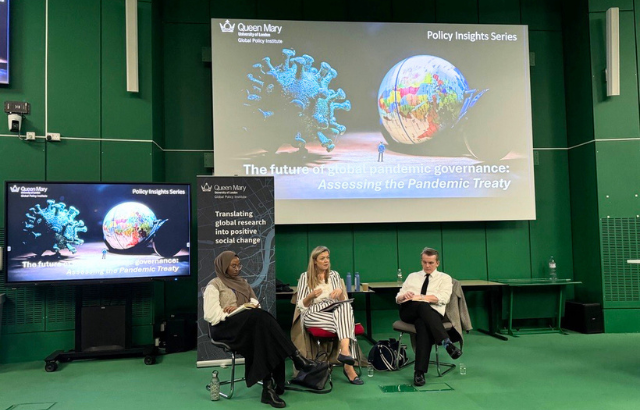Hosted by Dr Jonathan Filippon and moderated by Dr Ben Verboom and PhD candidate Aida Hassan from the Wolfson Institute of Population Health, the event explored the negotiation process behind the agreement and debated whether it still holds potential to address the disparities exposed by COVID-19.
Professor Clare Wenham highlighted the challenging political environment, noting that key issues like gender equity and human rights have been sidelined due to disagreements among negotiating countries.
“The idea that a pandemic treaty could resolve the failures of global governance during COVID is overly optimistic. What we have now is a text that might be easy for governments to sign, but it’s being stripped of anything controversial to ensure quick agreement. In the end, it’s likely to be a ‘vanilla’ agreement, lacking the political commitment needed to truly make a difference in future pandemics”, she emphasised.
Dr Mark Eccleston-Turner criticised the use of “equity” as a concept in the Pandemic Agreement, as it’s traditionally used in maritime boundary disputes, not global health. “By focusing on equity instead of human rights, we miss out on 70 years of established norms and legal authority in human rights frameworks”, he added.
He also delved into the transactional nature of the agreement, where low-income countries provide pathogen samples in exchange for vaccines: "The agreement suggests reserving 20% of global vaccine production for low- and middle-income countries, but that leaves 80% for wealthier nations. It doesn’t address vaccine nationalism or the structural imbalances in vaccine production.”
The Policy Insight Series will continue to explore pressing global health issues in the coming months, with future events aimed at addressing these and other concerns. More details soon in the QMGPI events page.
